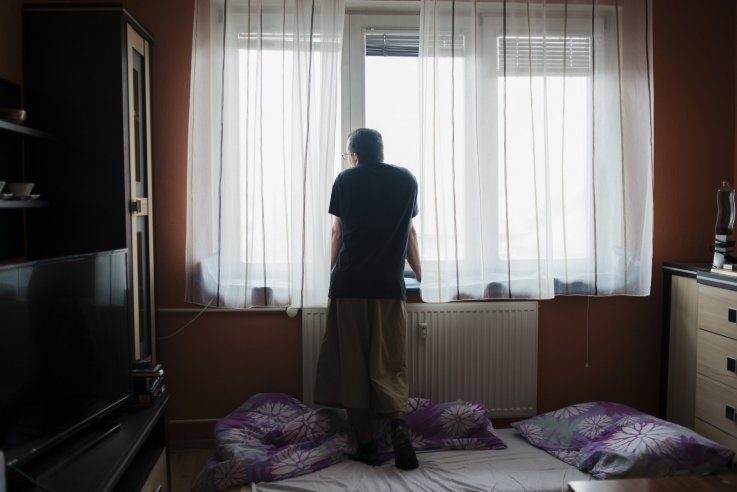Photos: Life After Gitmo

Two years ago, al-Merfedy was one of dozens of detainees the U.S. kept locked up at Guantánamo Bay detention camp in spite of never being charged with a crime. Though he had been cleared for release in 2008, he spent more than a decade in prison without explanation. That changed on November 14, 2014, when the military handcuffed and blindfolded al-Merfedy and put him on a plane. When he landed, however, he was not home in Yemen; he was thousands of miles away in Slovakia, a stranger in a new country.
After more than 10 years behind bars, Hussein al-Merfedy wants to start over in his new home. But he and others like him are seemingly stuck in limbo, neither imprisoned nor completely free.
"I am almost 40 years old," he says. "I imagined having a family and children one day. But here I am, still alone."
Over the past two years, the Obama administration has renewed its push to close Gitmo and release detainees it no longer deems a threat. Of the roughly 780 original prisoners, 61 remain behind bars, 20 of whom are cleared for release. But detainees from war-torn countries like Yemen, Libya and Syria cannot return home; the U.S. government fears they might join or rejoin extremist groups.
Instead, the Defense Department has released 55 former detainees to Gulf states, rather than their home nations. But these countries will take only so many men, so others were forced to go to Kazakhstan and Slovakia, where they've struggled to adjust. "The idea seemed to be to get them out of Guantánamo at almost any cost," says David Remes, a lawyer to many present and former detainees, including al-Merfedy. "They were dropped into strange lands, with cultures, religions and language far different from their own, and where they were bound to be treated like pariahs."
Men like al-Merfedy are seemingly stuck in limbo, neither behind bars nor completely free. They are not banned from working, but no one will hire them; they want to marry, but Muslim women are scarce; they long to reunite with their families, but more than a year after release, they are still alone. "Each day, I walk through Tbilisi," says Salah al-Dhaby, a Yemeni former detainee who was transferred to Georgia. "I live a silent life, wandering the streets, then going back to a silent apartment."
That silence, al-Merfedy says, feels like a cage. "We thought we would be free when we left Guantánamo," he says. "Instead, we went from the small Guantánamo to here—a bigger Guantánamo."


